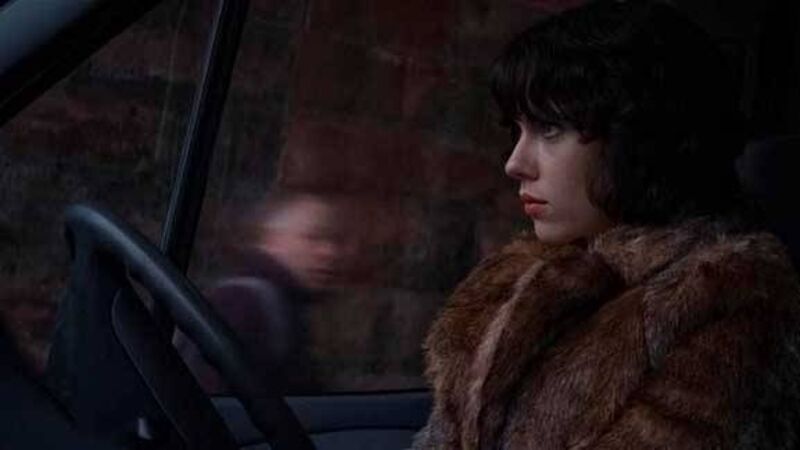Movie reviews: Under the Skin

Glasgow might not be the first setting we think of when dystopian sci-fi is mentioned, but then it’s hardly our first port of call when we think of classical Greek mythology either. Adapted from Michel Faber’s novel, Jonathan Glazer’s blends sci-fi and mythology, particularly in the character of Laura (Scarlett Johansson), a beautiful young woman who trawls the back streets of Glasgow in a white van, preying on lonely men who are seduced by her siren’s call. The men, we understand, are being lured to their death, but Laura is even more inhuman than serial killers tend to be. An alien creature, she has taken on the characteristics of a female human in order to feed on the energy of earthlings. What makes Under the Skin a fascinating film is that while Laura possesses the physical characteristics of a human, she understands nothing of human character. Given that Johansson has very little by way of persona to play with, and that the movie is more or less a one-woman show in which she is the focus of virtually every shot, she puts in a phenomenally nuanced performance as Laura begins to explore her new surroundings and tries to come to terms with human emotions. It’s an unsettling film in many ways (Mica Levi’s abrasive soundtrack is particularly disturbing), but a number of scenes are literally breathtaking as Glazer sketches out the extent to which the alien creatures are immune to the most basic of human instincts. There may well be a thesis buried in the subtext about our inability to communicate with one another in contemporary society, but Laura’s plight is such that, despite her alien origins and behaviour, the story is gripping, horrifying and ultimately heartbreaking.
Set in the future, offers an entirely different kind of dystopian sci-fi, as computer programmer Qohen Leth (Christoph Waltz) is commissioned by Management to prove the ‘Zero Theorem’ — ie, that everything is nothing. Director Terry Gilliam is no stranger to satirical, futuristic black comedies (Brazil, Twelve Monkeys), and The Zero Theorem offers a beautifully realised (if excessively bleak) world in which humanity has devolved to the point where it is no more than a ghost in the machine. Our hero Leth rages against the machine (“How can you believe in the soul if you believe in nothing?”) and attempts to salvage his humanity by literally plugging into an online relationship with Bainsley (Mélaine Thierry) that allows them physically explore a paradisiacal experience. Waltz is brilliantly cast as the aloof and quirky Leth, a bewildering (and for the most part bewildered) host of tics and twitches who insists on referring to himself as ‘we’. He is an awkward clown who is difficult to empathise with, however, and the same is true of the film itself. It’s a visual treat laden with endearingly childish flourishes as it grapples with metaphysical issues of existence and being, but for all the clever dialogue and intriguing concepts it explores, the movie never really engages the heart.











